Standing together against the water crisis: the power of women in Malaka, Indonesia
The lack of clean water in Indonesia not only leads to health problems and a negative impact on the local economy, but also places a heavy burden on women and girls who are responsible for providing water. Female leaders refuse to accept this reality and see it as their mission to bring about change in their daily struggle for water.
‘I see it as my duty to make as many women in our community as possible aware of their right to clean drinking water. I also encourage the new generation of women to speak up and contribute ideas for solutions. Women and girls are still responsible for water, so it is important that they realise that having a say is important.’
Finsensia Nekin (51) from Tunabesi, a small village in the Malaka region of West Timor, says this with full confidence. In a crowded village hall, in front of a bare green lawn with hardly any shade, dozens of women from the village have gathered to discuss the water problem that continues to plague this region.
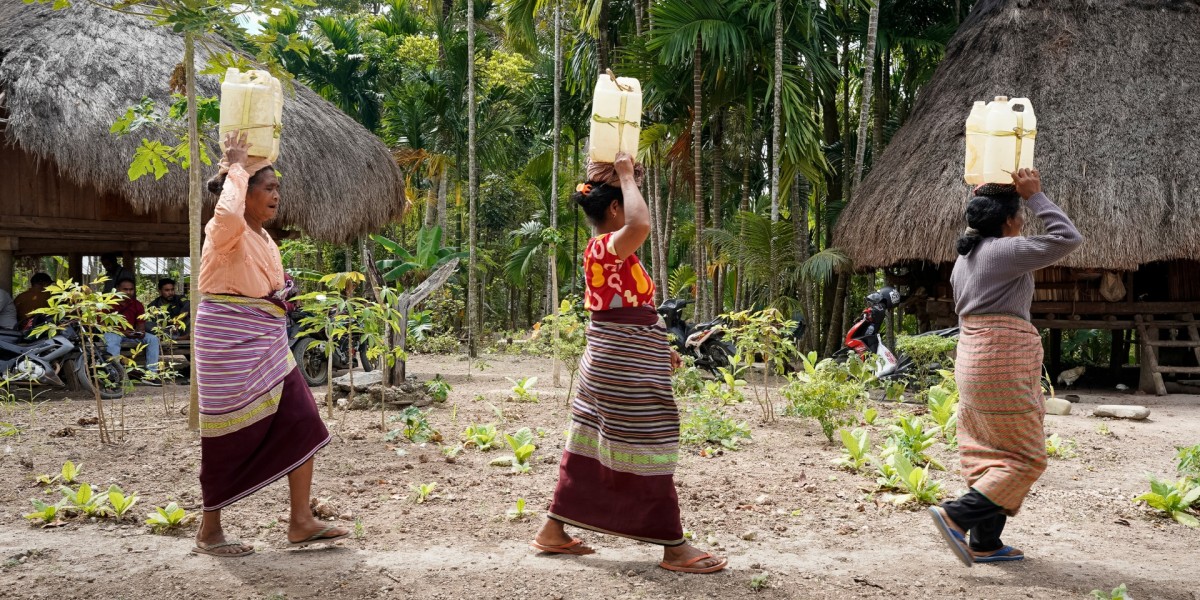
Finsensia clearly plays an important role in the community. She radiates her stance as a pioneer in water issues. Standing tall and powerful, curious and charismatic, she seems to rise above everyone and everything. And while most of the women around her wear colourful sarongs and keep their hair tied up in a bun, she wears her hair loose on her shoulders.
In her light green blouse with gold-coloured embellishments and large white flowers, she says passionately: 'We have a big water problem here. Many families still do not have access to the water they need every day for cooking, washing and watering their vegetables. Not only is this a basic right, it also hinders development in many areas. And that has to change.'
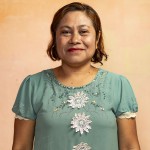
'Many families still don't have access to the water needed every day for cooking, washing and watering their vegetables.'
Finsensia’s mission
Finsensia's Nekin has been living in Tunabesi for 20 years, where the inhabitants mainly live off agriculture. It is one of the poorest regions in Indonesia. For a long time, the village had the highest mortality rate in the region among pregnant women and babies, partly due to the lack of clean drinking water. In recent years, this has improved significantly as water reservoirs and a water supply system have been built, but not all 13 smaller villages in Tunabesi are connected to it yet.
Finsensia's husband was the village head of Tunabesi for a long time, and over the years she learned about organisation and meetings, as well as the power and necessity of working together. She was able to learn the ropes from her husband, and in recent years she has made it her own mission. She set up women's groups in the community because she saw that it was mainly women and girls who had to cope with the water shortage on a daily basis.
Solidarity among women
Finsensia brought the women together in a weaving group and an agricultural group. Now they meet regularly and use that time to talk to each other, identify problems and find solutions. And it works. Slowly but surely, more and more women are becoming aware of the issues and are willing to get involved.
‘Everyone is very motivated now. The women encourage each other to plant more and different types of seeds for more income for example, but also to contribute ideas for things like the construction of rainwater tanks.’
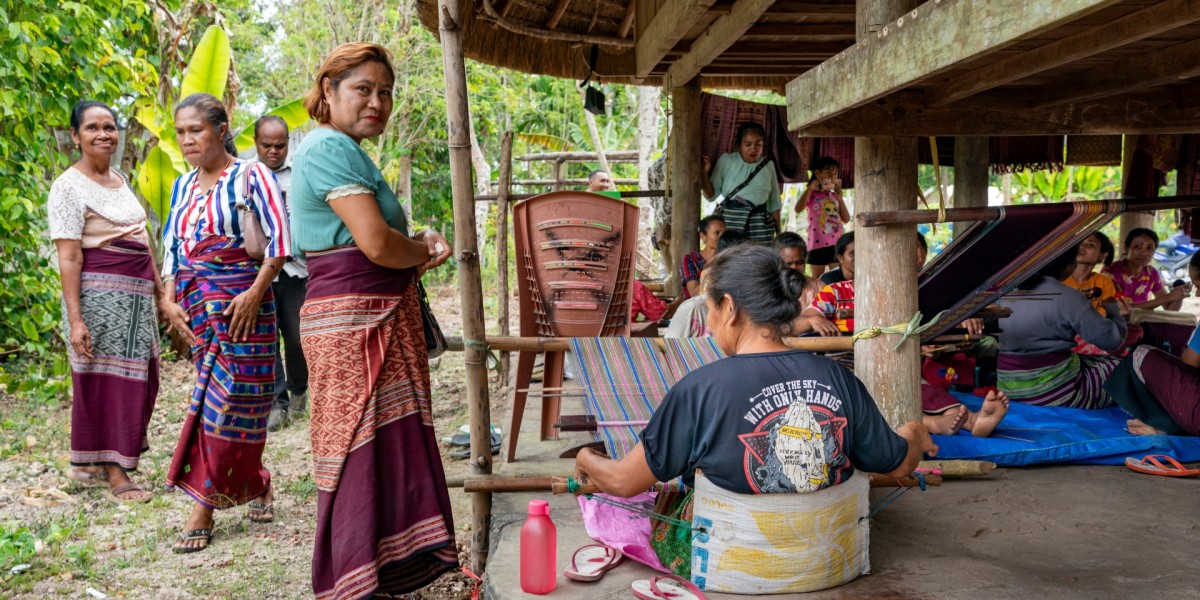
The daily burden
Access to clean water in Malaka has been a challenge here for years. It has always been one of the driest regions in Indonesia, but climate change is making it drier every year.
Girls and women in particular do the hard work of fetching water from a natural water source. In practice, this means spending many hours every day carrying heavy jerry cans on their heads. 'Our women spend far too much time every day fetching water. As a result, many women are unable to pursue an education. They don't know any better, but this also means that the region remains poorly educated,' says Finsensia.
Wilheminia's experience
Forty-five-year-old Wilheminia Muti confirms this issue. Every morning, like many other women and girls, she gets up at four o'clock to fetch water from the water source in a higher area. The path through the tropical forest is steep, full of rocks and potholes, and when it has rained, it is slippery and muddy. There is often a queue at the spring and she has to wait a long time to fill her five jerry cans.
'I carry three full jerry cans of five litres each on my head and one in each hand. It's very heavy when we have to walk back up the hill. It takes me at least three hours. And in the afternoon, I often go back again. Because it's not enough to wash, cook and water my vegetables. It often makes me sad because my child has to go to school without breakfast. Every day, it takes me at least six hours.'
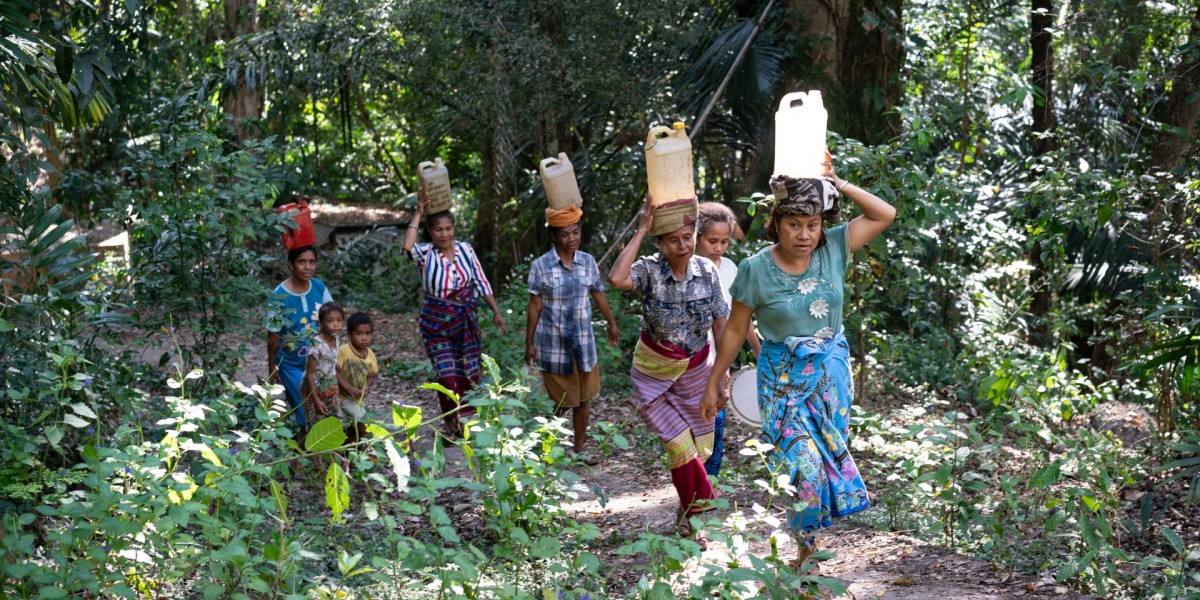
Negative consequences
Finsensia Nekin acknowledges the concerns and recognises the adverse consequences. ‘Sometimes the women have no energy left for other things, because the burden of fetching water greatly affects their lives. And it also causes them financial problems. There is less harvest, so less income. It is time we realised that the lack of drinking water is hindering our own development. That has to change.’
‘Fortunately, there is a great deal of solidarity among the community. Recently, there was a meeting of the local government. They were looking for a technical solution to the clogging of the water pipes. I suggested raising money for rainwater tanks for families who cannot afford them. And it worked.’
Health problems
Anna Pentimung has observed how carrying heavy jerry cans also takes a physical toll on many women. She is a nurse at the health centre in Kufeu, another village in the Malaka region. Due to the lack of clean drinking water, she sees women and children with diarrhoea, skin problems and allergies every day during her consultations.
'Many women suffer pain from carrying dozens of litres of water every day. It causes all kinds of physical complaints such as back pain, neck pain and sore shoulders. I give them painkillers, which helps temporarily. Much more important – and this is my greatest wish – is for every family to have its own water supply, such as a connection to a water supply system or its own water reservoir. Then you have far fewer of these problems.'
Fitriani’s experience as a midwife
Fitriani Eduk is a midwife who was born and raised in Kufeu. On the veranda in front of the mayor's house, she talks about her village and the mutual solidarity she experiences there.
As a midwife, she left the village to study and completed her training on the Indonesian island of Borneo. There she worked for years in remote communities and saw the severe consequences of insufficient drinking water. A few years ago, she returned home to work as a midwife in her own village.
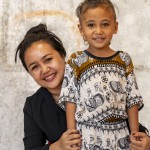
'We have learned to look out for each other. When people are less fortunate, we all contribute something.'
The necessity of hygiene
Fitriani's knowledge of her work in Borneo came in useful. Wherever she can, she encourages young girls to study. In her experience, poor access to clean water is a real problem for many newborn babies and their mothers. 'After giving birth, a lot of water is needed for the healthy hygiene of mother and child. It has to be fetched, filtered and boiled, which takes a lot of time.'
She sees a lot of skin problems and diarrhoea, especially in young children. Every year, around 20 children are born in the village and surrounding area. 'It would be fantastic if families, especially those in the less accessible villages, had much better access to clean drinking water. That would make such a difference to their quality of life.'
The significance of female leadership
The visible negative consequences of the water crisis are a driving force behind Finsensia's activism. She sees it as her role to pass on her knowledge about water and women's rights to the younger generation as much as possible. She is motivated and decisive. When asked whether she should become the new village chief of Tunabesi given her experience, she initially responds in the negative.
'I help where I can, but I'd rather leave that to the new generation. I don't have much education. Although I do think female leadership is very important. Women think long term, are often good listeners and are practical.' She looks with admiration at the mayor of Bani Bani, a village nearby.
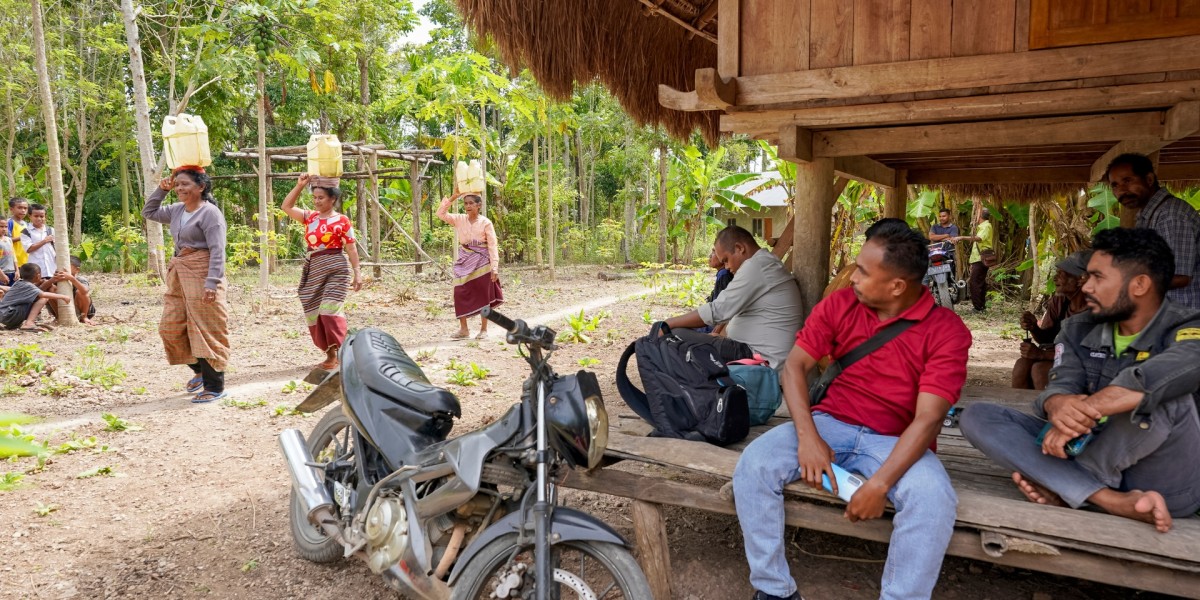
Action against unsafety
Olivia Tamilan has been mayor of Bani Bani for two years now, providing political leadership for her community. She is proud that so many people have placed their trust in her. She is an example to many women in her community and tackles water issues as best she can.
'I know of examples of young girls who were harassed by drunk men while fetching water. Two years ago, our village council convicted a man for harassing a married woman. He had to pay her husband money, a chicken, a pig and “sopie” (traditionally distilled alcohol). It hasn't happened since. You have to take action against that kind of behaviour.’
Water Justice Fund
Simavi's Water Justice Fund supports women's groups in Indonesia, Nepal, Bangladesh and Kenya in combating the water crisis. In Malaka, we work with women to adapt to climate change and implement sustainable solutions that guarantee access to water for everyone. We do this by putting resources directly into the hands of women and girls and strengthening their capacities through training.

